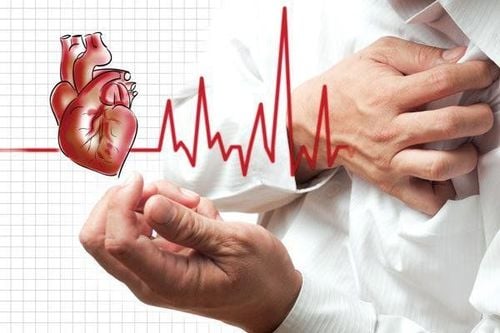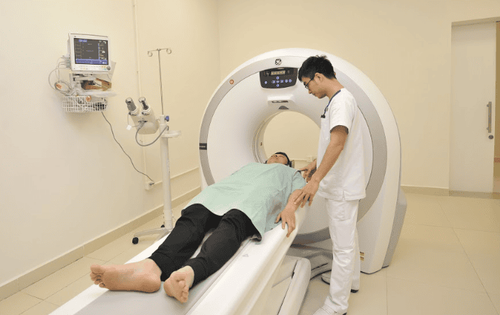This is an automatically translated article.
The article was professionally consulted by Interventional Cardiologist Pham Van Hung - Vinmec Danang International General HospitalCardiovascular disease has been and is the leading health concern in the world with the leading mortality and disability rates. Understanding these risk factors will help you prevent cardiovascular disease most effectively. Here are the top 11 cardiovascular risks you probably didn't know.
There are many life factors that have been shown to increase the likelihood of developing and progressing cardiovascular disease . These factors are divided into two groups.
The first group is the risk factors that cannot be changed such as: age, sex, genetic factors. The second group are modifiable risk factors such as: living habits, exercise... MORE: Learn about cardiovascular diseases
1. The group of risk factors does not change
Gender In general, men have a higher risk of cardiovascular disease than women. However, in postmenopausal women, the risk of cardiovascular disease increases rapidly. Cardiovascular disease in women is also more severe, has a higher mortality rate, but is often missed and comes later than in men.
Heredity If you have a family history of heart disease, for example, your parents or siblings have had heart problems before the age of 55, you will have a higher risk of cardiovascular disease. normal. In addition, risk factors for cardiovascular risk such as high blood pressure, diabetes and obesity can also be inherited.
Age Old age is one of the risk factors for cardiovascular disease. The older you get, the less efficient your heart works. The walls of the heart thicken and the arteries harden, making it harder to pump blood, which is why the risk of cardiovascular disease increases with age.

2. Group of modifiable risk factors
Modifiable factors include eight main factors: overweight and obesity, smoking, heavy alcohol consumption, lack of physical activity, stress, high blood pressure, high blood cholesterol, diabetes. Many studies have shown that 90% of cardiovascular events such as acute myocardial infarction or cerebrovascular accident are related to the eight major risk factors mentioned above.Obesity and overweight Being overweight increases total blood cholesterol levels. Obesity to varying degrees increases the risk of cardiovascular disease. Obesity can affect the formation of a number of other cardiovascular risk factors, preconditions for atherosclerosis such as hypertension, diabetes, dyslipidemia or resistance.
Tobacco addiction Most people know that smoking increases the risk of lung cancer but few know it also significantly increases the risk of cardiovascular disease. Smoking increases the risk of coronary artery disease, cerebrovascular accident, peripheral artery stenosis... The risk of sudden death of smokers is 10 times higher than that of non-smokers in men and twice as high as that of non-smokers. 5 times in women. In fact, 30-40% of coronary heart disease deaths are caused by smoking.
Smoking increases the heart rate, tightens the large arteries causing irregular heartbeat, can lead to arrhythmias ... leads to less efficient heart function and becomes more difficult. In addition, smoking also raises blood pressure and increases the risk of stroke in people who already have high blood pressure.
The risk of cardiovascular disease will gradually decrease when you stop smoking, even if you have smoked for a long time. If you continue to stop smoking, the level of risk will gradually decrease to almost the same level as in a person who has never smoked. Smoking low-nicotine cigarettes does not reduce the risk of the disease. Furthermore, many people who use this drug tend to smoke more and inhale more deeply, increasing their exposure to the harmful substances in smoke and causing more serious consequences.
In addition to nicotine, other chemicals found in cigarette smoke such as carbon monoxide are also harmful to the heart. These chemicals build up plaque in the arteries, affecting cholesterol and levels of fibrinogen, a clotting factor, which increases the risk of blood clots and can lead to heart attacks.
Drink a lot of alcohol If used in moderation, no more than 1-2 cups a day, alcohol can prevent atherosclerosis and coronary heart disease. But if you drink too much alcohol, it increases the risk of cardiovascular events by increasing blood pressure, increasing the risk of liver damage, brain complications (especially cerebral hemorrhage) and a number of other cardiovascular diseases. .
Lack of physical activity People who are inactive or have few opportunities to be physically active will have a higher risk of cardiovascular disease than people who regularly exercise. Being active and exercising will burn calories, help control cholesterol levels and diabetes, and keep blood pressure in check. Exercise also strengthens the heart muscle and makes the arteries more flexible.
Regular daily exercise of at least 45 minutes will bring significant benefits in reducing the risk of cardiovascular disease. Regular exercise has been shown to reduce the risk of a heart attack and improve survival during a heart attack.
Stress There are many studies that show that people experiencing stress and anxiety will increase the risk of dyslipidemia, a disease that causes a disorder of fats in the blood that increases bad cholesterol LDL increases the risk of fibrosis atherosclerotic plaque.
Hypertension Hypertension is the most noticed cardiovascular risk factor. High blood pressure increases the risk of heart attack and stroke. If you combine obesity, smoking and high cholesterol, the risk of heart disease or stroke will increase significantly.
Blood pressure can vary depending on exercise and age, but basically, blood pressure readings in adults at rest should be 120/80 mmHg.
High blood cholesterol Cholesterol is a fat analog found in the blood. The liver produces cholesterol to form cell membranes and make certain hormones. In addition to this cholesterol, the body also receives another amount of cholesterol from foods that are tolerated, these foods are mostly of animal origin such as meat, eggs, dairy products...
Although they are We often blame the cholesterol in food for high blood cholesterol, but the real culprit is the saturated fat found in food. There are foods that do not contain cholesterol but still contain large amounts of other saturated fats such as red meat and dairy products.
These saturated fats increase the amount of LDL cholesterol (the bad cholesterol that increases atherosclerosis), creating plaque on the artery walls. When plaque builds up in the coronary arteries that supply blood to the heart, it leads to an increased risk of heart attack.
Diabetes People with diabetes are considered to be as likely to have cardiovascular events as people with coronary heart disease. Even if blood sugar is only slightly increased, the risk of cardiovascular disease is higher than the average person. In addition to medication to control blood sugar, weight loss and regular exercise promote blood sugar utilization and help prevent or slow the onset of diabetes.
3. Limit cardiovascular risk factors
Follow a healthy heart-healthy diet: eat lots of green vegetables, fruits, fish.. eat less saturated fat and cholesterol Maintain a healthy body weight: Maintain weight and limit salt and pepper intake. Consumption will help control blood pressure and reduce the risk of heart disease and stroke. Exercise regularly for at least 45 minutes a day. Stop smoking. If you drink alcohol, drink in moderation. Learn how to reduce stress, anxiety, and get proper rest. Get regular check-ups to assess your risk level.

In addition, it should also be noted, cardiovascular diseases are increasing and rejuvenating rapidly. If patients perform periodic screening for early detection and timely treatment, serious consequences of the disease such as myocardial infarction, stroke, aortic aneurysm, and sudden death can be prevented. Vinmec Medical Center currently offers Basic and Advanced Cardiovascular Screening packages at discounted prices, helping each customer maintain a healthy heart for a full happy life.
If you need more advice and examination at Vinmec Health System Hospitals nationwide, please book an appointment on the website for service.
Please dial HOTLINE for more information or register for an appointment HERE. Download MyVinmec app to make appointments faster and to manage your bookings easily.














